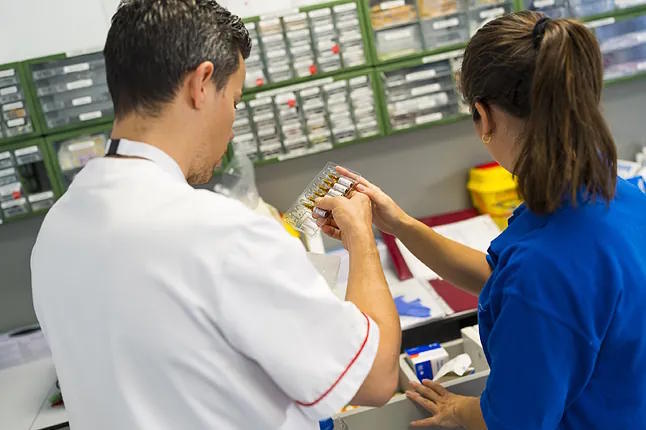Chemotherapy is one of the 'star' treatments against cancer, one of the most commonly used approaches due to its effectiveness in eliminating tumor cells. Unfortunately, it is not effective in all cases, so some patients undergo this therapy that often entails harsh side effects without ultimately benefiting against the tumor.
Scientists from the Spanish National Cancer Research Centre (CNIO) have developed a method that allows predicting, before starting chemotherapy, in which patients it will work. The technique, developed by the Computational Oncology Group of the research center in collaboration with the University of Cambridge and the spin-off company Tailor Bio, allows predicting the effectiveness of commonly used chemotherapies, those based on platinum compounds, taxanes, and anthracyclines. The details of their work are published in the latest issue of the journal Nature Genetics.
"Our work proposes a significant change in the way conventional chemotherapies are used in clinical practice, allowing to identify which patients will truly benefit from these treatments. This could avoid the unnecessary administration of chemotherapy in patients who will not respond, thus reducing unnecessary side effects," state, via email, Geoff Macintyre, head of the CNIO Computational Oncology Group, and Bárbara Hernando, a researcher from the group, two of the first signatories of the publication.
"Since chemotherapy remains the standard treatment for many aggressive and/or advanced tumors, this improvement in treatment selection could benefit hundreds of thousands of cancer patients each year," they continue. According to their data, between 20% and 50% of cancer patients do not respond to chemotherapy treatment.
The method they have developed allows recognizing alterations in the genome, patterns of chromosomal instability, which are related to resistance to the mentioned forms of chemotherapy.
Bárbara Hernando, Geoff Macintyre, and Joe Sneath Thompson, signatories of the work.CNIO
The effectiveness of the biomarker test has been validated in 849 patients with ovarian, breast, prostate, and sarcoma cancer, but the method "is designed to be applicable to all types of tumors," emphasize the scientists.
"The test starts from a biological sample and/or sequencing data that are routinely collected in hospitals. We are currently optimizing the procedure to provide prediction results in approximately one week," they clarify.
For these biomarkers to be used in clinical practice, the technology developed by CNIO researchers must now be validated in a hospital setting.
"We have received funding from the NextGenerationEU program to validate our test in a hospital setting. This process will allow us to demonstrate that the technology is ready to be used in clinical trials starting in 2026," explain Hernando and Macintyre.
"The next step will be to contact regulatory agencies to define the process of implementing the test in clinical practice, but we hope that the timelines will be significantly shortened thanks to the innovative method we have applied to validate the test in this study: using existing patient data to emulate a clinical trial," they clarify.
"Taking a biomarker from the discovery phase to the clinic is usually not easy. But with persistence and collaboration, it is possible to turn a research project into a truly promising technology from a clinical perspective," they assure.
The researchers are convinced that the same technology can also be useful for predicting the effectiveness of other types of oncological treatments.
"We have preliminary results indicating that this technology could also be used to predict the response to other types of therapies. In collaboration with the spin-off company Tailor Bio, we are currently optimizing the technology to apply it to other therapies," they point out.
The scientists emphasize that the precise use of chemotherapy benefits not only patients but the healthcare system as a whole: by reducing the expenditure on ineffective therapies and treating complications related to therapy side effects, healthcare costs are reduced.
